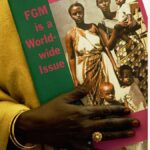Female Genital Mutilation (FGM) remains a significant human rights issue in Nigeria, despite growing awareness and legal frameworks against it. This harmful practice, rooted in cultural, traditional, and sometimes religious beliefs, affects millions of women and girls, leaving lifelong physical and emotional scars. Advocacy against FGM is not only vital for individual well-being but also for the development and health of communities and the nation as a whole.
Protecting Women’s Health
FGM often leads to severe health complications, including chronic pain, infections, difficulties during childbirth, and, in extreme cases, death. Advocacy helps to educate communities on the severe health risks involved, encouraging them to abandon the practice. By doing so, we can protect the health of countless women and girls.
Upholding Human Rights
FGM is a direct violation of human rights. It undermines a woman’s right to health, security, and bodily autonomy. Advocacy efforts help highlight these violations, calling for stronger laws and enforcement to ensure every girl and woman is protected from such abuse.
Breaking the Cycle of Harmful Traditions
In many Nigerian communities, FGM persists due to deeply ingrained cultural norms. Advocacy provides a platform for dialogue, challenging misconceptions and creating awareness about the harm caused by FGM. By promoting alternative rites of passage, communities can preserve cultural identity without endangering their women and girls.
Promoting Gender Equality
FGM is a symbol of gender inequality, often used as a tool to control women’s sexuality. Advocacy empowers women and girls by addressing the root causes of this inequality, fostering an environment where they can thrive without fear of discrimination or harm.
Ensuring Compliance with Legal Frameworks
Nigeria’s Violence Against Persons (Prohibition) Act criminalizes FGM, yet enforcement remains a challenge due to lack of awareness and resistance from certain communities. Advocacy bridges this gap by educating citizens about their rights and the consequences of violating the law, encouraging compliance and reporting of offenders.
Encouraging Community-Led Solutions
Change is most effective when it comes from within. Advocacy brings together local leaders, health professionals, and survivors to lead the fight against FGM. Their voices are powerful in dismantling harmful beliefs and driving sustainable change in their communities.
Empowering Survivors
Advocacy efforts also focus on supporting survivors of FGM, helping them heal physically and emotionally. By sharing their stories, survivors can inspire action and contribute to the movement against this harmful practice.
Advocating against FGM in Nigeria is essential for safeguarding the health, dignity, and future of women and girls. It is a collective responsibility that requires the collaboration of governments, NGOs, communities, and individuals. Together, we can create a Nigeria where every girl grows up free from the threat of FGM, empowered to reach her full potential.
Let’s continue to raise our voices, educate our communities, and stand united against this harmful practice. The time for change is now.



0 Comments